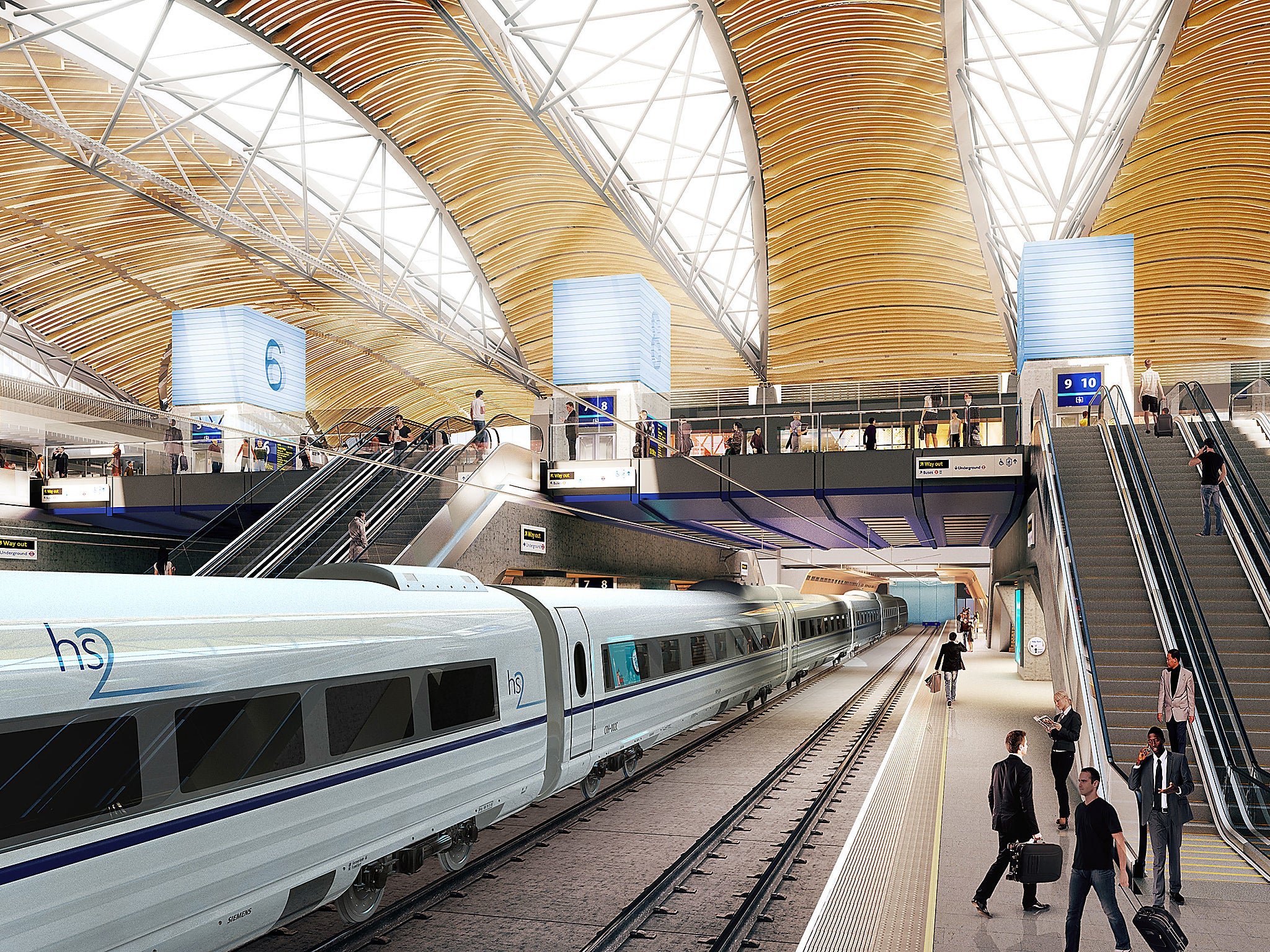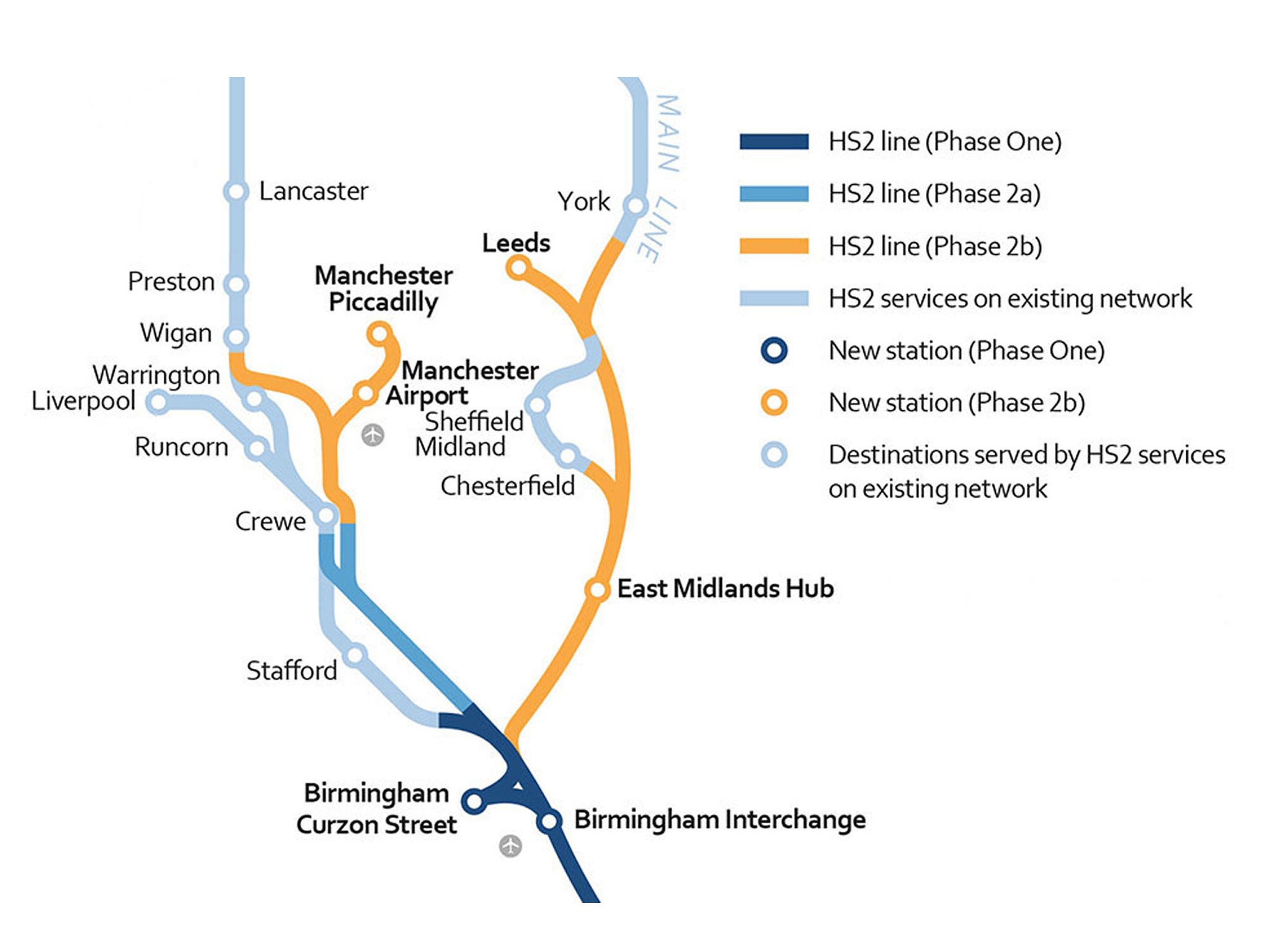Government backs parliamentary bill to take HS2 past Birmingham
Legislation to give the government powers to build and operate railway line makes return

The government will legislate to take the HS2 rail line north past Birmingham, under plans brought forward on the day of the Queen's Speech.
The rail reform and High Speed Rail 2 (West Midlands – Crewe) Bill was included in Thursday's legislative programme, in a blow opponents of the project who had hoped to see it scrapped.
Downing Street says the new legislation will give the government the powers to acquire the land needed for the railway, build it, and operate it.
Ministers also plan to scrap the current rail franchising setup and replace it with what the government describes as a "simpler, more effective system". Specific recommendations for the new model will be revealed by the Williams Review, which was set up by the government last year and is yet to report.
A separate review, the Oakervee Review, was launched by Boris Johnson this summer to look into whether HS2, a new high-speed north-south rail line linking major cities across England, should go ahead.
While the review has not yet formally reported, a purported leaked draft which emerged ahead of the election suggested that the project should proceed with only minor alterations – though it criticised rising costs and slipping deadlines.
While parts of the project still need a formal green light, a so-called "notice to proceed" on construction, the return of the bill is more evidence that the government is unlikely to scrap it. Preparatory work for the first phase of the project between London and Birmingham is already underway.
The bill had already passed its second reading in the House of Commons in the previous parliament but will now progress to the House of Lords, its next legislative stage.

Other legislation included in the Queen's speech plans to restrict workers' rights to go on strike. The new legislation will make strikes on the railways unlawful unless a "minimum service agreement" is in place between unions and employers. The government says it will consult on how to implement the proposal and has not drawn up specific legislative plans.
HS2's network effectively consists of three railway lines radiating from Birmingham, with one spur towards Manchester, one towards Leeds, and one towards London.
As well as speeding up intercity journey times, rail planners say the network is needed to release capacity on existing lines and improve regions and local services running on the west coast mainline, midland mainline, and east coast mainline.
Rail services on HS2 will also be able to make use of existing track, meaning faster journeys to cities not directly sites on the network such as Liverpool, Stafford, Preston, and Chesterfield – as well as services to Scotland.
Opponents of the project say escalating the costs are not worth it, while others have raised environmental concerns regarding construction in woodland.
Join our commenting forum
Join thought-provoking conversations, follow other Independent readers and see their replies
Comments
Bookmark popover
Removed from bookmarks